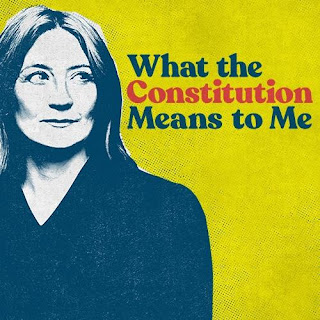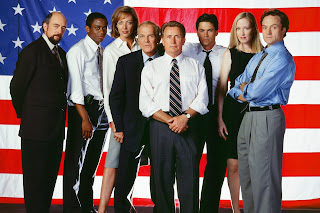The play’s premise is based on Schreck’s time spent crossing the country giving speeches about the Constitution during her teen years, eventually making enough to fund her college education. One wonders how the teenaged Schreck engaged with what some consider an arcane document. The United States Constitution, the document upon which the foundation of our republic is built, carries an air of mystery. Hundreds of years old, incredibly difficult to amend, the Constitution may seem to have little relevance to the day-to-day life of people living in the United States. Over the course of the play Schreck schools the audience better than any history teacher ever could that the Constitution, in fact, has a more direct impact than many would ever imagine.
Schreck's feelings about the Constitution, naturally, have evolved over time. And Schreck, as an adult, is more willing and able to come to terms with some of the traumas that she and her family has experienced. To detail her specific personal connections to the Constitution here would be to reveal too much of the play’s content. Suffice it to say, touching on immigration, women’s rights and domestic abuse, Schreck’s connections to the document and the effect of its' interpretation are eye opening.
Schreck is an engaging storyteller if a bit frenetic. At times, the play seems to lose focus, but Schreck addresses that. And, in reality, any seeming digressions only serve to make the play all that more personal. At the play’s conclusion, a young student debater joins Schreck on stage. The two spar in a brief parliamentary style debate, one taking the position to keep the Constitution, the other, to abolish it. At the end of the debate, the audience takes a vote: keep or abolish.
What I found most surprising and engaging, even given my admittedly lacking Constitutional knowledge (though I did rock a Con Law paper about the Terry stop), is that both arguments have valid points. Points that anyone could admit they identify with. And therein lies the case for everyone in this country to watch this play. When personal connections are made with the Constitution, with laws, with policies, the tendency is for us all to become more invested, even perhaps, as Schreck advocates, run for local office. Eventually, over time, the policymakers look a lot less like old, white men and more like the diverse country we are. And the laws and policies that are produced become equitable to all people. Watch What the Constitution Means to Me. And then vote.






















